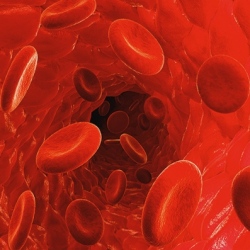
A visibly shaken or unconscious athlete can be a clear indication of concussion following a knock to the head. Milder concussions can be much harder to detect, but can still be a threat to long term health. Researchers have now devised a blood test that can detect these kinds of concussions up to 7 days after the incident.
Many approaches are aimed at picking up on an injury in the immediate aftermath of an incident. And because lighter knocks don’t always induce symptoms like dizziness, vomiting and blurred vision right away, sufferers mightn’t seek treatment and the injury can go undetected, leading to things like headaches, memory loss and depression down the track.
Researchers have now developed a blood test that reveals biomarkers indicative of a concussion up to seven days after the fact. The team analyzed 600 patients across three years, testing blood for a protein called glial fibrillary acidic protein (GFAP). This biomarker lives in the glial cells that surround neurons in the brain and is released into the bloodstream when an injury occurs.
By scanning the blood samples for heightened levels of GFAP and checking them against scans, the researchers were able to detect mild to moderate traumatic brain lesions with an accuracy of 97 percent. Furthermore, they claim that it can also suggest which patients needed life-saving neurosurgery.
The Orlando Health researchers are touting their approach as a way of picking up on more minor concussions that could otherwise slip through the cracks. Promisingly, they claim that the reliability of the new blood test is almost on par with that of a CT scan. Because CT scans are costly and come with a dose of radiation, reducing reliance on them could be real boon for doctors.
In an earlier study, the researchers compared the effectiveness of both CT scans and their blood test. After analyzing 152 children within six hours of receiving a mild to moderate brain injury, they found that the blood test detected the injuries with 94 percent accuracy, something they claim is close to state-of-the-art CT scans.
"Physicians really want to minimize the amount of CTs in patients, especially children, who are a lot more sensitive to radiation and the side effects that can come with it," says Linda Papa, researcher at Orlando Health. "Fortunately, this simple blood test appears to give us nearly the same information as a CT scan."
